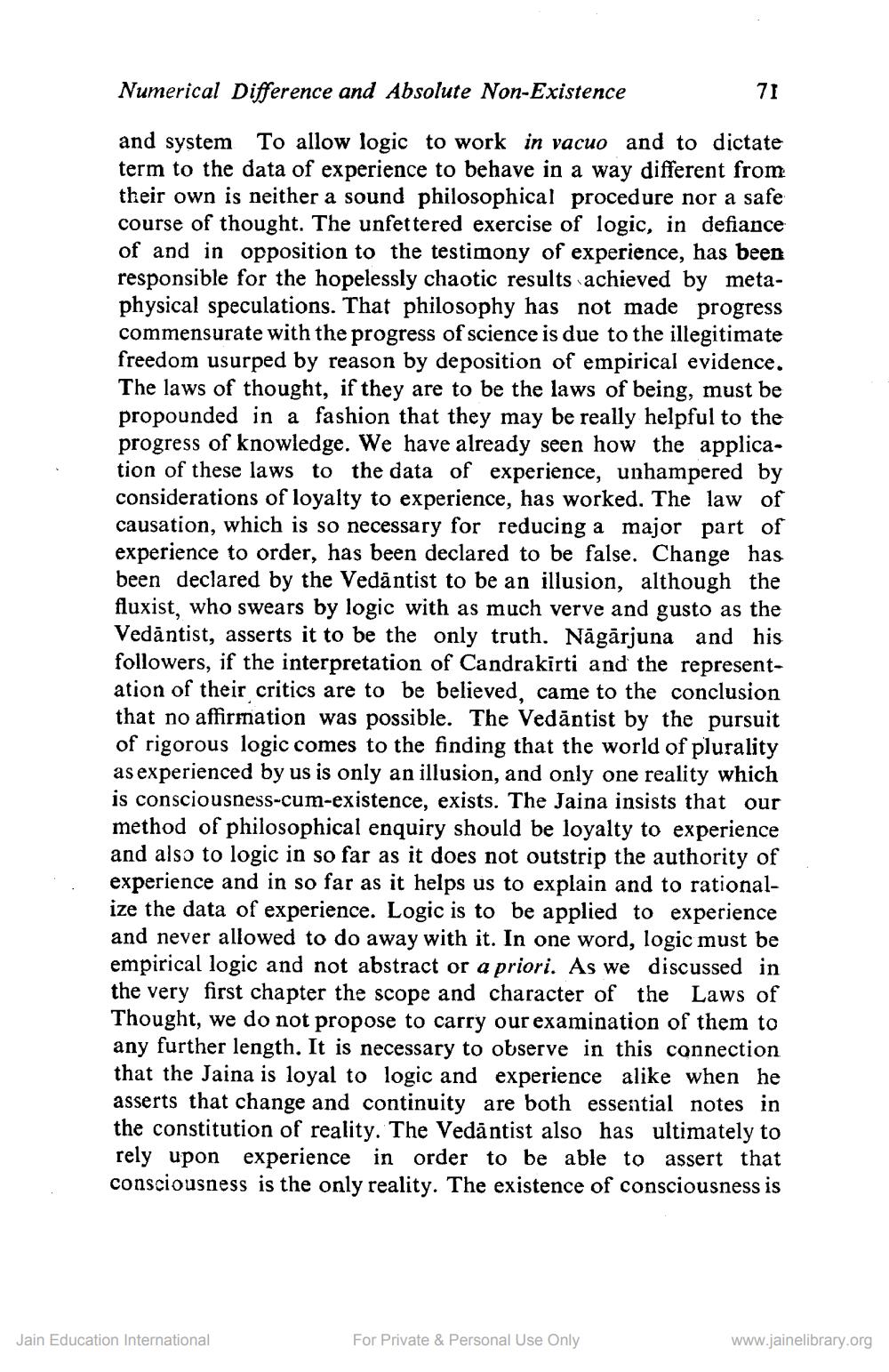________________
Numerical Difference and Absolute Non-Existence
and system To allow logic to work in vacuo and to dictate term to the data of experience to behave in a way different from their own is neither a sound philosophical procedure nor a safe course of thought. The unfettered exercise of logic, in defiance of and in opposition to the testimony of experience, has been responsible for the hopelessly chaotic results achieved by metaphysical speculations. That philosophy has not made progress commensurate with the progress of science is due to the illegitimate freedom usurped by reason by deposition of empirical evidence. The laws of thought, if they are to be the laws of being, must be propounded in a fashion that they may be really helpful to the progress of knowledge. We have already seen how the application of these laws to the data of experience, unhampered by considerations of loyalty to experience, has worked. The law of causation, which is so necessary for reducing a major part of experience to order, has been declared to be false. Change has been declared by the Vedäntist to be an illusion, although the fluxist, who swears by logic with as much verve and gusto as the Vedāntist, asserts it to be the only truth. Nagarjuna and his followers, if the interpretation of Candrakirti and the representation of their critics are to be believed, came to the conclusion that no affirmation was possible. The Vedantist by the pursuit of rigorous logic comes to the finding that the world of plurality as experienced by us is only an illusion, and only one reality which is consciousness-cum-existence, exists. The Jaina insists that our method of philosophical enquiry should be loyalty to experience and also to logic in so far as it does not outstrip the authority of experience and in so far as it helps us to explain and to rationalize the data of experience. Logic is to be applied to experience and never allowed to do away with it. In one word, logic must be empirical logic and not abstract or a priori. As we discussed in the very first chapter the scope and character of the Laws of Thought, we do not propose to carry our examination of them to any further length. It is necessary to observe in this connection that the Jaina is loyal to logic and experience alike when he asserts that change and continuity are both essential notes in the constitution of reality. The Vedäntist also has ultimately to rely upon experience in order to be able to assert that consciousness is the only reality. The existence of consciousness is
Jain Education International
For Private & Personal Use Only
71
www.jainelibrary.org




